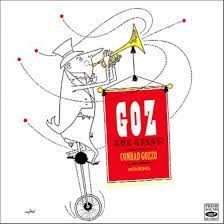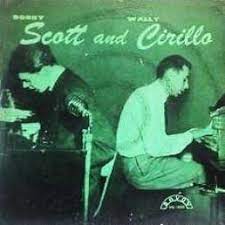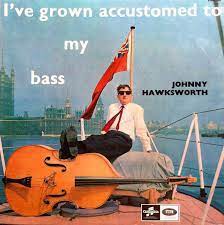
Three Wishes
While hanging out one evening during the conversation with Al Dreares, the Baroness asked him his three wishes. He told her this:
-
- “I wish that I may become a great musician.”
- “And I also wish that I can be successful with my fellow musicians.”
- “And I wish my son grows up to be a fine young man. He’s four and a half months old.”
*Excerpt from Three Wishes: An Intimate Look at Jazz Greats ~ Compiled and Photographed by Pannonica de Koenigswarter
More Posts: baroness,drums,history,instrumental,jazz,music,pannonica,three,wishes

Three Wishes
Pannonica inquired what his three wishes would be if they could be granted and Frank Wess responded by telling her the following:
-
- “I don’t know. I don’t know. You’d think I was crazy if I told you. Well, I’d like to have a crazy pad with horses and some crazy dogs! And to play good music with a lot of people all of my life. And I’ll leave the third wish to the fairy godmother, because she’s been so nice.”
*Excerpt from Three Wishes: An Intimate Look at Jazz Greats ~ Compiled and Photographed by Pannonica de Koenigswarter
More Posts: baroness,flute,history,instrumental,jazz,music,pannonica,saxophone,three,wishes

Daily Dose Of Jazz…
Conrad Joseph Gozzo was born in New Britain, Connecticut on February 6, 1922. His father played trumpet, and he began learning the instrument around the age of 5. He played in his junior and senior high school bands, but left school around the age of 16 at the recommendation of Isham Jones to join bandleader and clarinetist Tommy Reynolds in Boston, Massachusetts.
Quickly noted for his exceptional technical ability and style, Conrad played with Reynolds for nine months, then left to play with Red Norvo in 1939. Staying in the band for two years he went on to play with trumpeter Johnnie Davis, then performed and recorded with the Bob Chester Orchestra, and with Claude Thornhill’s band.
By 1942 he had a short stint with Benny Goodman before enlisting in the U.S. Navy, where clarinetist Artie Shaw had formed a band, the Rangers No. 501. Their first assignment was San Francisco, California and then Hawaii before touring in the South Pacific, the U.K. and the mainland States. After his discharge in 1945, Gozzo briefly rejoined Goodman along with fellow trumpet players from Shaw’s band.
By the Fifties Gozzo was sitting in the lead trumpeter chair on the Glen Gray, Stan Kenton, and Harry James “remakes”, and in Dan Terry’s 1954 Columbia sessions. He recorded extensively with arrangers Van Alexander, Nelson Riddle, Billy May, Ray Conniff, Jerry Fielding and Shorty Rogers, and also with performers Dean Martin and Frank Sinatra. He played first trumpet on all of the recordings of composer Henry Mancini.
He performed on many major live television shows broadcast on the NBC network, including the Dinah Shore Show, and performed on motion picture soundtracks including The Glenn Miller Story, The Benny Goodman Story, Bye Bye Birdie, Call Me Madam, Ben-Hur and Cleopatra. He played on the two-record set on Verve, Ella Fitzgerald Sings the Harold Arlen Songbook. In 1955, Gozzo released his own album, Goz the Great!, signed with RCA Victor and played by “Conrad Gozzo and his Orchestra”, directed by Billy May. Three of the twelve tracks were written together by Gozzo and May.
Conrad Gozzo, whose nicknames were Goz and Gopher because of his resemblence to the animal when playing, transitioned on October 8, 1964 from liver disease in Burbank, California. Jazz composer Sammy Nestico dedicated Portrait of a Trumpet to Gozzo.
More Posts: bandleader,history,instrumental,jazz,music,trumpet

Daily Dose Of Jazz…
Wally Cirillo was born Wallace Joseph Cirillo on February 4, 1927 in Huntington, New York. He studied at the New York Conservatory of Modern Music and the Manhattan School of Music, and played with Chubby Jackson and Bill Harris in the early 1950s.
In 1954 he began working with John LaPorta, Teo Macero and Charles Mingus as part of the New York Jazz Composers Workshop. The following year, he led a session with Mingus, Macero, and Kenny Clarke, which was later reissued under Mingus’s name as Jazz Composers Workshop. The piece Transeason on this album was composed by Cirillo, makes use of serialism, one of the earliest manifestations of this compositional technique in jazz. He also recorded with LaPorta and with Johnny Mathis in the 1950s.
Cirillo relocated to Florida in 1961, where he led his own band and worked with Phil Napoleon, Flip Phillips, Ira Sullivan, and Joe Diorio. He recorded sparsely throughout his career.
Pianist and composer Wally Cirillo transitioned on May 5, 1977 in Boca Raton, Florida.
More Posts: bandleader,composer,history,instrumental,jazz,music,piano

Daily Dose Of Jazz…
Johnny Hawksworth was born in London, England on February 2, 1924 and initially trained as a pianist, but also played double bass in the Ted Heath Orchestra during the early 1950s and through the 1960s. Becoming one of the most popular jazz bassists in the UK, he won numerous polls and was often featured as a soloist on Heath concerts and recordings.
As a composer Johnny wrote many television themes including Salute to Thames, Thank Your Lucky Stars, Roobarb, Man About the House and George and Mildred. He contributed some of the incidental music used in the 1967 Spider-Man cartoon, and his composition, Er Indoors, was frequently used in SpongeBob SquarePants. While working on films, he scored The Naked World of Harrison Marks, The Penthouse, and Zeta One.
Hawksworth has also written many pieces of stock music for the De Wolfe Music library. He also provided the hypnotic musical soundtrack to Geoffrey Jones’s classic British Transport Films Snow and has composed American-style blues-based material under the name Bunny J. Browne and classically-based material under the name John Steinway.
Bassist and composer Johnny Hawksworth transitioned on February 13, 2009 in Sydney, Australia at the age of 85.
More Posts: bandleader,bass,composer,history,instrumental,jazz,music


